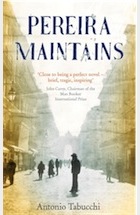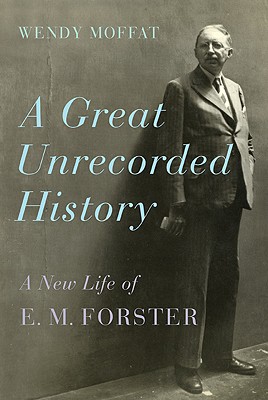 In 1943 Italian chemist Primo Levi, a Jew, was captured by the Fascist Militia and eventually transported to Auschwitz in 1944, where he somehow survived until the end of World War II. His Survival in Auschwitz, written just a year later, is, on its surface, a remarkably dispassionate document. It records the conditions under which he and his fellow inmates lived to remind the German people, he wrote in his first preface to the book, what they had done, and it is a portrait of people in extremis - what occupies their thoughts, their code of behavior, how they survive, and how they die. To accomplish this he circumscribes the scope of his job (like any good artist):
In 1943 Italian chemist Primo Levi, a Jew, was captured by the Fascist Militia and eventually transported to Auschwitz in 1944, where he somehow survived until the end of World War II. His Survival in Auschwitz, written just a year later, is, on its surface, a remarkably dispassionate document. It records the conditions under which he and his fellow inmates lived to remind the German people, he wrote in his first preface to the book, what they had done, and it is a portrait of people in extremis - what occupies their thoughts, their code of behavior, how they survive, and how they die. To accomplish this he circumscribes the scope of his job (like any good artist):...we can perhaps ask ourselves if it is necessary or good to retain any memory of this exceptional human state.
To this question we feel that we have to reply in the affirmative. We are in fact convinced that no human experience is without meaning or unworthy of analysis, and that fundamental values, even if they are not positive, can be deduced from this particular world which we are describing...We do not believe in the most obvious and facile deduction: that man is fundamentally brutal, egoistic and stupid in his conduct once every civilized institution is taken away...we believe, rather, that the only conclusion to be drawn is that in the face of driving necessity and physical disabilities many social habits and instinct are reduced to silence.
Levi buttresses himself with a philosophical stance that frames this work, that specifically limits his considerations:
Sooner or later in life everyone discovers that perfect happiness is unrealizable, but there are few who pause to consider the antithesis: that perfect unhappiness is equally unattainable. The obstacles preventing the realization of both these extreme states are of the same nature: they derive from our human condition which is opposed to everything infinite. Our ever-insufficient knowledge of the future opposes it: and this is called, in the one stance, hope, and in the other, uncertainty of the following day. The certainly of death opposed it: for it places a limit on every joy, but also on every grief. The inevitable material cares opposed it: for as they poison every lasting happiness, they equally assiduously distract us from our misfortunes, and make our consciousness of them intermittent and hence supportable.The way Levi sets his limits allows him to think enough to engage in the act of writing and permits us the possibility of reading it without simply contemplating a void of infinite horror. It keeps this book from being something other than a single deafening scream. Victor Klemperer accomplishes a similar feat in his diaries of life as a Jew in Dresden under the Nazis. He was not incarcerated or murdered in a camp as he way married to an Aryan, but the laws systematically removed his right to work, denied him access to food, transportation, or medicine, stripped him of citizenship, subjected him to forced labor, and eventually forced him into the ghetto. Klemperer chose to bear witness to this erosion of his rights and his dignity as well as to document the Nazi's co-opting of the German language to accomplish their purposes. But it is the specific adoption of a circumscribed task that is supported by a mission, as well as the perseverance to write through it, whatever the feelings, that leaves us these valuable records of survival in the midst of systematic dehumanization.
Levi's record is delivered with stoicism, as if he will not allow the Nazi's the pleasure of derailing his mission by devolving into hysteria, however, there are some remarkable flashes of what can only be described as irony:
This is the reason why three-year-old Emilia dies: the historical necessity of killing the children of Jews was self-demonstrative to the Germans.And then he commits the only act of defiance he can given the fact that she is dead, he remembers her.
Emilia, daughter of Aldo Levi of Milan, was a curious, ambitious, cheerful, intelligent child; her parents had succeeded in washing her during the journey in the packed care in a a tube with tepid water which the generate German engineer had allowed them to draw from the engine that was dragging us all to death.I particularly admired Levi's portraits of four fellow prisoners, Schepschel, a Galician saddler who survived via an opportunistic will to do so, Alfred L., a formerly powerful industrialist who survived via disciplined maintenance of a respectable appearance, Elias Lindzin a dwarf from Warsaw who survived via brute force, and Henri who survived via intelligence and pity for others. Most interesting in this section of the book, was Levi's imagining whether each survived the war, if so how he might live in the world, and whether Levi would wish to encounter them as free men, should they still be living. He cuts himself off from musing too long, however, stating that life outside of Auschwitz is not within the purview of the book. There are already plenty of stories, he writes, about life outside.
This is a difficult book, to be sure, as it is so relentlessly focused on cruelty. But it is nonetheless a readable book for it is not merely about suffering, but also about friendship, survival, pity, and understanding. So when you're up for it, I urge you to add to your knowledge of history and of human nature by reading it. I will leave you with one last story Levi relates of Fraulein Liczba and Frau Meyer.
...They have smooth, rosy skin, beautiful attractive clothes, clean and warm, blond hair, long and well-set; they speak with grace and self-possession, and instead of keeping the laboratory clean and in order, as they ought to, they smoke in the corners, scandalously eat bread and jam, file their nails, break a lot of glass vessels and then try to put the blame on us; when they sweep they sweep our feet. They never speak to us and turn up their noses when they see us shuffling across the laboratory, squalid and filthy, awkward and insecure in our shoes...
These girls sing, like girls sing in laboratories all over the world, and it makes us deeply unhappy. they talk among themselves: they talk about the rationing, about their fiances, about their homes, about the approaching holidays..."Are you going home on Sunday? I am not, traveling is so uncomfortable!"
"I am going home for Christmas. Only two weeks and then it will be Christmas again; it hardly seems real, this year has gone by so quickly!"
...This year has gone by so quickly. This time last year I was a free man: an outlaw but free. I had a name and a family, I had an eager and restless mind, an agile and healthy body. I used to think of many, far-away things: of my work, of the end of the war, of good and evil, of the nature of things and of the laws which govern human actions; and also of the mountains, of singing and loving, of music, of poetry. I had an enormous, deep-rooted foolish faith in the benevolence of fate; to kill and to die seemed extraneous literary things to me. My days were both cheerful and sad, but I regretted them equally, they were all full and positive; the future stood before me as a great treasure. Today the only thing left of the life of those days is what one needs to suffer hunger and cold; I am not even alive enough to know how to kill myself.
If I spoke German better I could try to explain all this to Frau Meyer; but she would certainly not understand, or if she was so good and intelligent as to understand, she would be unable to bear my proximity and would flee from me, as one flees from contact with an incurable invalid, or from a man condemned to death. Or perhaps she would give me a coupon for a pint of civilian soup.
This year has gone by so quickly.





























